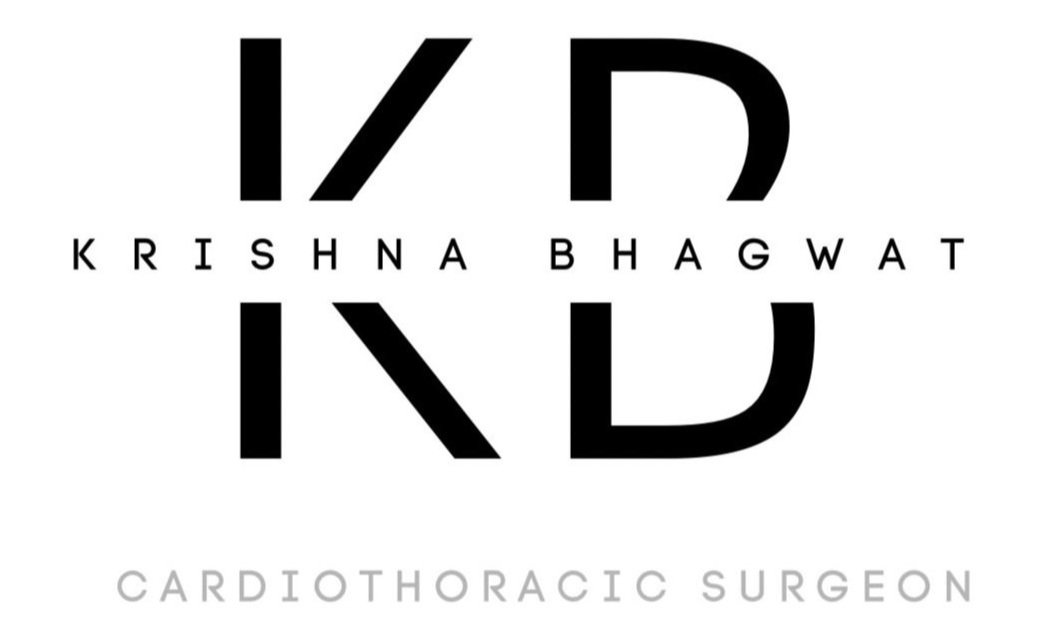
Pathway to Recovery
Diagnosis
It can be a worrying time from when you or your loved one first experience symptoms to being diagnosed with a condition that requires heart or lung surgery. There’s a lot to take in, including understanding what your surgery will involve, how long you will be in hospital and what you can expect recovery to look like.
Regardless of what type of surgery you need, Dr Bhagwat and his team will keep you fully informed about what to expect at each point of your journey, and provide support every step of the way.
First Symptoms & GP Referral
Most patients who need heart or lung surgery will typically experience common symptoms of shortness of breath or a feeling of tightness in the chest. Note, if these symptoms are so acute that it’s difficult for you to breathe or stand, or you are very worried about how you feel, then your first stop should be a hospital’s emergency department.
However, if these symptoms are mild and mainly make you feel uncomfortable, then book in to see your GP. They will investigate your symptoms and refer you onto a specialist (cardiologist / respiratory physician) if they think you need further tests.
Referral to a Specialist
CARDIOLOGIST
Once you’ve been referred to a cardiologist, the cardiologist will ask you for your full medical history. They will then perform an examination and an echocardiogram. An echocardiogram is an ultrasound of the heart and is a safe and painless. Soundwaves from the ultrasound provide a picture of your heart’s chambers and valves.
Your cardiologist may want to also perform a coronary angiogram. For this procedure, a liquid contrast agent is injected into the bloodstream via a thin tube (catheter) which is inserted into the wrist or leg. The dye provides an outline of the blood vessels so they are visible on a scan. A local anaesthetic is used at the point where the catheter is inserted.
These tests and procedures will help the cardiologist know if you have a condition – such as severe valve disease, several blocked coronary arteries or an aortic aneurysm – that requires a cardiothoracic surgeon to operate on.
RESPIRATORY PHYSICIAN
A respiratory and sleep medicine specialist is a medical professional who specialises in diagnosing, treating and preventing conditions and diseases affecting the respiratory (breathing) system. Respiratory diseases affect the nose, nasal passages, sinuses, throat, larynx, trachea (windpipe), lungs, chest wall, diaphragm, pulmonary circulation (circulation of the blood through the lungs) and the ventilatory control system in the brain.
A respiratory physician offers a lung function testing service. These tests are primarily performed to examine how well your lungs are working. Lung function tests are used to help diagnose a range of lung conditions including (but not limited to); asthma, emphysema, chronic obstructive pulmonary disease (COPD) and asbestosis. Sometimes other tests (X-rays, blood tests) are required to make a more definitive diagnosis. These tests and procedures will help the respiratory physician know if you have a surgically treatable condition that requires a cardiothoracic surgeon to operate on. Surgical procedures may include: a bronchoscopy, insertion of catheters (for drainage) or stents (to keep airways open), a lobectomy (removal of one of the lobes of the lung), a lung biopsy and lung transplant.
Meeting Dr Bhagwat
Before you first meet with Dr Bhagwat, he will have thoroughly read the notes from your referring physician and details about the results. It’s important that you bring your medication list and any other information, such as scans from your Specialist, so Dr Bhagwat can review these with you.
He will go over your medical history again and perform his own examination to determine if surgery is needed.
If surgery is needed, Dr Bhagwat will start to explain what options – minimally invasive, robotic or open heart or lung surgery – are available to you, and which type of surgery will likely produce the best result for your individual circumstances.
If he determines that you do not need surgery, he may recommend a management plan and follow up with you in a few months to see how you are progressing.
Pre-operative Assessment
If you haven’t already had a coronary angiogram, Dr Bhagwat may request one. He may also request some other tests to get as much clarity as possible on your condition and general health.
Pre-admission Clinic
The pre-admission clinic provides you with a final checklist of what you need to ensure you’re ready for surgery. You’ll also meet your anaesthetist and other clinical staff who will review your history and medications and prepare you for surgery.
Your final preparations for surgery will depend on the surgery you’re having. However, generally, if you are on blood thinning medication, you’ll need to stop taking it 5 days before surgery. This medication includes: Pradaxa (dabigatran), Eliquis (apixaban), Xarelto (rivaroxaban), Coumadin (warfarin), Aspirin, Plavix (clopidogrel), Effient (prasugrel), Brilinta (ticagrelor), and also fish oils, Ginkgo & Ginseng.
If you have diabetes and are taking oral SGLT2 inhibitors like dapagliflozin (Forxiga), empagliflozin (Jardiance), and ertugliflozin (Steglatro), along with fixed-dose combinations containing metformin (Xigduo, Jardiamet, Segluromet) or gliptins (Glyxambi, Qtern, Steglujan), it's important to stop these medications 2 days before your scheduled surgery.
